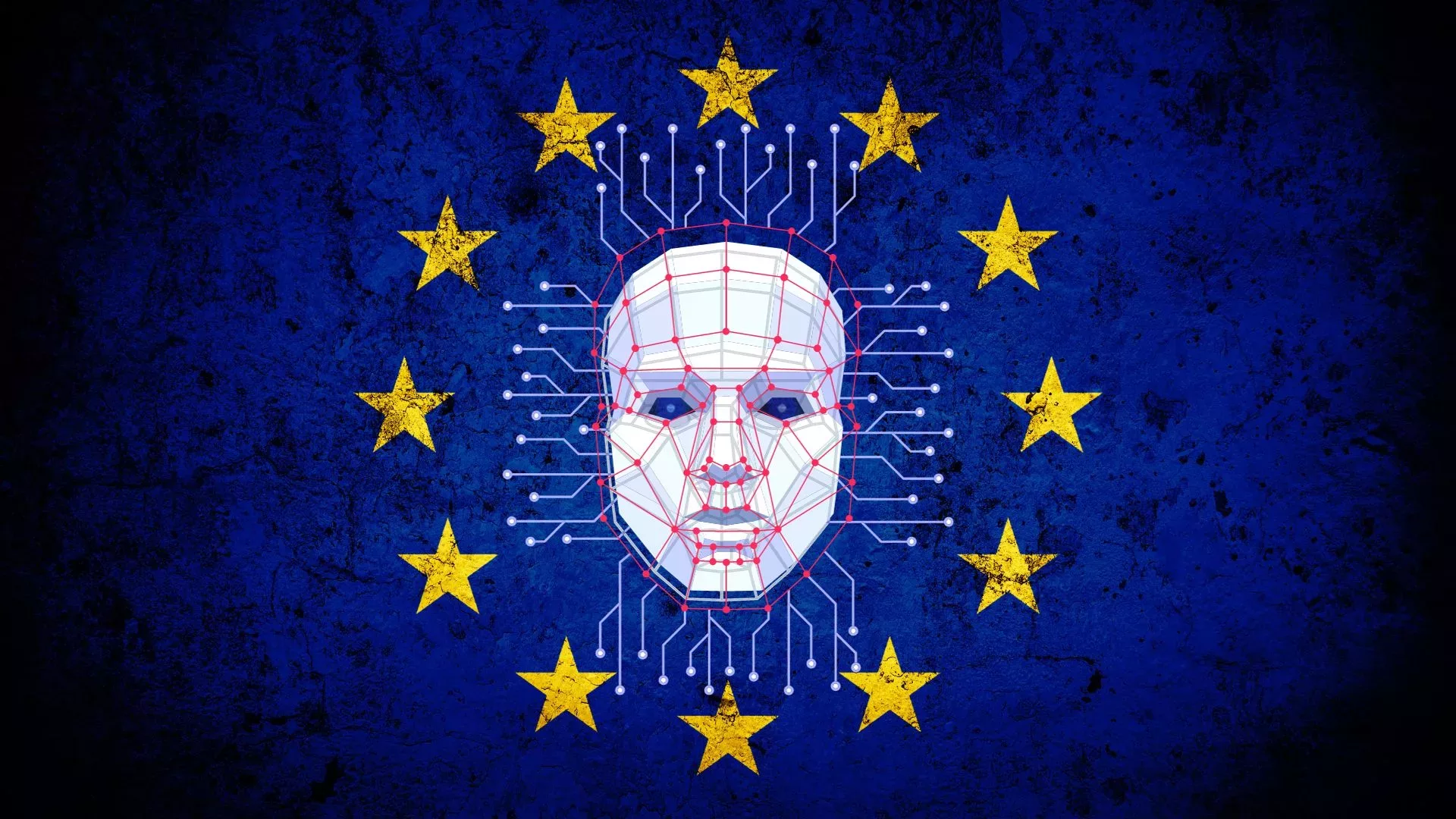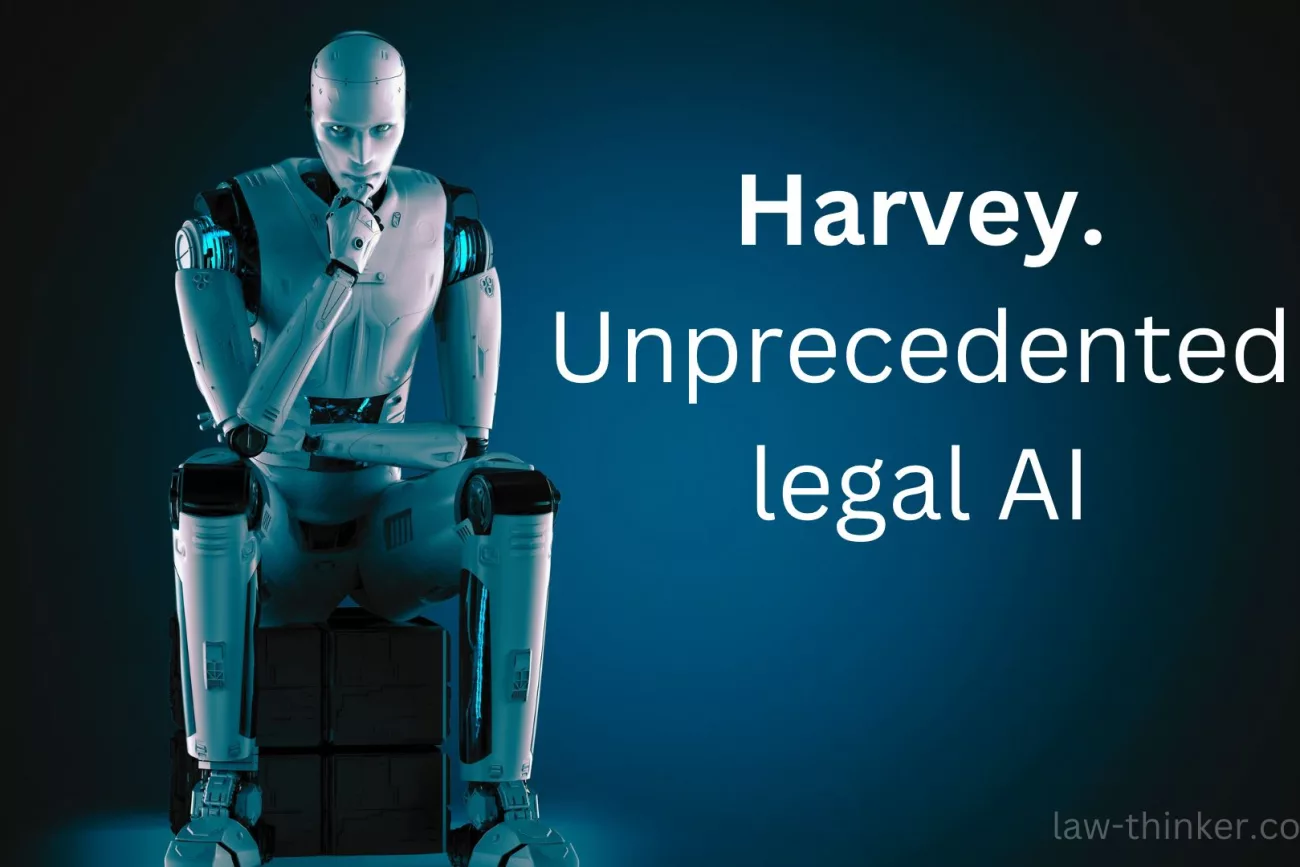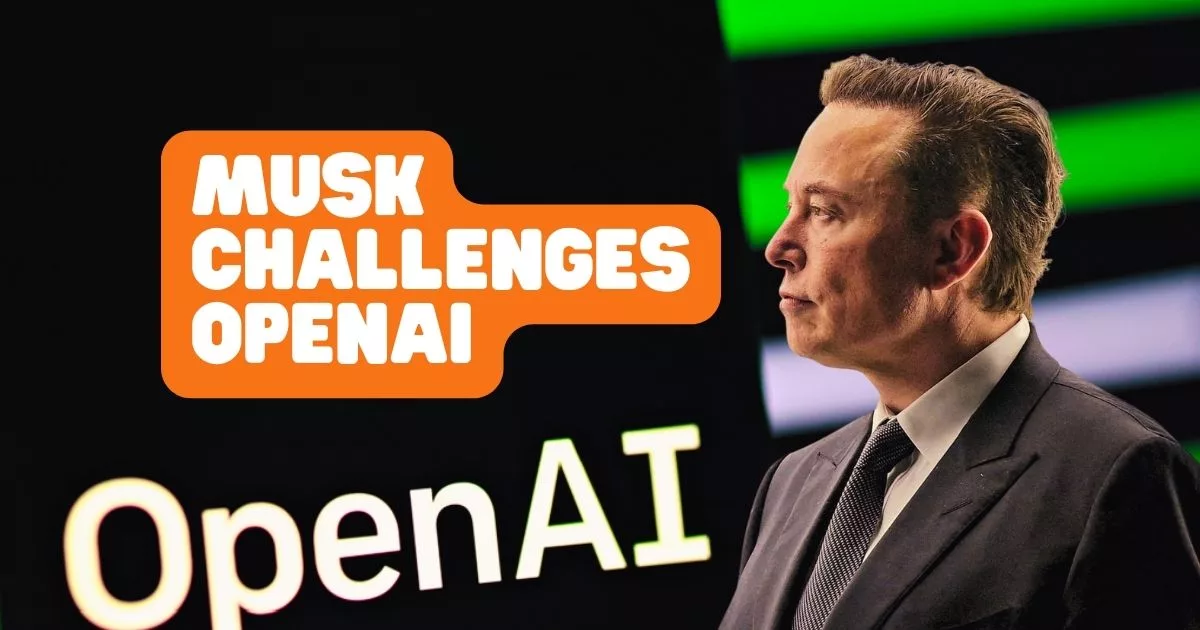
Key Points:
- Europe ventures boldly into AI regulation, generating both excitement and skepticism in the global tech community.
- Key voices like Joe Lonsdale and Sam Altman weigh in, highlighting potential pitfalls and the importance of security without stifling innovation.
- The UK charts a different course, emphasizing collaboration and flexible guidelines over stringent regulations.
- Europe’s AI regulation journey is a high-stakes drama, potentially shaping the global discourse around AI.
🤖Europe & the AI Act: A Financial Self-Sabotage or a Masterstroke?🤨
Spoiler Alert: The world of AI is watching… and, by the end of this, they might be scratching their heads just like you. So, get ready for a wild legal rollercoaster!
Europe’s Grand Gambit in the AI Arena 🎭
Hold onto your legal briefcases, folks! Europe’s making waves, and these aren’t the kind you leisurely swim in on a Santorini vacation. They’re more like tsunamis of change in the AI world.
Setting the Stage 🌍
Here’s the scene: European regulators, with their well-tailored suits and an air of ambition, have unveiled their plans. They’re venturing into the complex maze of AI regulation, hoping to emerge as frontrunners. There’s palpable excitement in European boardrooms. After all, being at the forefront of AI regulation is akin to holding the scepter in the tech kingdom.
However, across the pond, the rest of the world looks on with a mix of skepticism, intrigue, and a dash of “are they really doing this?”
The Silicon Valley Whispers 🍷
As vineyards in Napa Valley release their latest wine vintages, Silicon Valley tech cafeterias serve a different kind of brew: heated discussions about Europe’s bold move. Those dining on avocado toasts and sipping on almond lattes are asking the big questions:
The Balancing Act: 🤹♂️
Can one genuinely craft an environment where AI products are as secure as Fort Knox, yet the economy thrives, bustling with innovation and prosperity? Or is that just a pipe dream, akin to hoping for calorie-free chocolate that tastes heavenly?
Russian Roulette or Calculated Risk? 🎲
Europe’s AI Act is nothing short of audacious. But is it a well-thought-out strategy, or are they unwittingly spinning the chamber in a game of Russian roulette with their own economic vitality? Will they emerge victoriously, or will the bullet of miscalculated regulation fire back?
What’s at Stake? ⚖️
The stakes are astronomical. Get it right, and Europe might just set the gold standard for AI regulations, with other nations playing catch-up. But misstep? They risk alienating innovators and dampening the entrepreneurial spirit, potentially redirecting the AI investments and talents elsewhere.
The world is watching, popcorn in hand, waiting to see how this high-stakes drama unfolds.
Taking on the ‘Anti-Industrial Revolution’ 🏭
Let’s dive deep into a viewpoint that’s causing a maelstrom in the AI ocean. It comes courtesy of Joe Lonsdale. His comments about the EU have certainly ruffled a few feathers, making him the talk of the town—or at least, the digital town.
Lonsdale’s Loud & Clear Message 📢
Joe doesn’t mince words. While sipping on his morning brew, he’s been known to drop bombshells in interviews, with one such explosive claim being the EU’s alleged resistance to progress. Referring to the EU’s stance on AI, he posits that they’re inadvertently acting as a barricade to the impending industrial revolution.
His sentiment? By implementing the AI Act, the EU might be closing its doors to the very future. A future painted with the hues of AI-driven innovations, pushing boundaries and redefining sectors. If Lonsdale’s crystal ball gazing is accurate, AI isn’t just a part of the third industrial revolution; it’s at its very helm.
The Man Behind the Controversy: Unmasking Joe Lonsdale 🕵️♂️
For the uninitiated, you might be wondering, “Who is this Joe, and why should we care about his perspective?” Let’s decode the enigma that is Joe Lonsdale.
Tech Prodigy: 🎓
After securing a computer science degree in 2003—a time when many of us were probably still wrestling with dial-up internet—Lonsdale wasn’t content with just being another cog in the machine. No sir! He dived headfirst into the world of tech.
The Entrepreneurial Spirit: 🚀
Not one to rest on his academic laurels, Lonsdale co-founded a slew of tech firms, navigating the intricate alleys of the tech universe. Some of these ventures were rooted deeply in AI, indicating his early foresight into AI’s boundless potential.
Venture Virtuoso: 💼
Fast forward to today, and he’s transformed into a Silicon Valley titan. A venture capitalist par excellence, he’s got his fingers in multiple pies, sensing the pulse of tech trends, and dishing out capital to the next big thing. And boy, does he have opinions—opinions that he’s not afraid to voice, no matter how contentious they may be!
In essence, Lonsdale isn’t just another talking head. He’s a tech maven with skin in the game. And while one may agree or vehemently disagree with his views, his perspective in the ongoing EU-AI saga is one that cannot be dismissed lightly.
Altman’s Alarming Alert: An Exodus on the Horizon? 🚫
It’s always electrifying when industry titans weigh in, and Sam Altman’s latest commentary was more like a thunderbolt than a mere spark. It’s sent ripples through boardrooms and corner offices, making everyone sit up and pay heed.
Altman’s Anticipation ⌛
Sam Altman, often synonymous with AI innovation, isn’t one for baseless speculations. So, when the head honcho of OpenAI muses about the potential shift of AI companies from Europe, you bet it’s time to grab your notepads and start scribbling.
He paints a not-so-rosy picture: intricate European rules may not just be minor roadblocks but full-blown deterrents. While he’s quick to assure everyone that ChatGPT isn’t eyeing the exit door just yet, his subtle “keep an eye on others” carries an unspoken gravity.
Not All Gloom and Doom ☀️
But it’s not all about the storm clouds; there’s a silver lining to this AI narrative, courtesy again of Mr. Altman. Despite his concerns, he isn’t exactly a naysayer. He isn’t rallying against AI regulations but rather emphasizing their correct implementation.
His perspective is simple yet profound:
Security First: 🔐
AI is powerful, and with great power, as we know, comes great responsibility. Altman firmly believes in the notion of AI developers ticking off a robust security checklist before launching their innovations. After all, an unchecked AI is like a car without brakes—potentially catastrophic.
Balancing Act: 🤹
While stringent measures are imperative, there’s a fine line between being thorough and being obstructive. The challenge lies in crafting laws that bolster security while not stifling the very essence of innovation.
In the AI Labyrinth 🌀
As Europe navigates this intricate maze of AI regulations, the words of industry leaders like Altman offer both a cautionary tale and a roadmap. The journey ahead is fraught with challenges, but with the right balance, the destination might just be a harmonious blend of innovation and security. One thing’s for certain: all eyes are on Europe, waiting to see how this AI odyssey unfolds.
Europe’s AI Gambit: Trailblazer or Test Subject? 🐷
When Europe unveiled its ambitious AI Act, it sent shockwaves through the international tech community. The continent isn’t merely toe-dipping; it’s making a cannonball leap into the vast ocean of AI regulation. But is Europe setting a gold standard or just setting itself up? Let’s unravel this.
Pioneering or Playing Safe? 🧭
Europe’s intent to lead the pack is clear, but pioneering moves are often accompanied by the lurking shadows of uncertainty. Without any established global playbook to follow, Europe is essentially drafting the first chapter in the history of AI regulations.
The Bright Side: ✨
Being the first mover has its perks. If successful, Europe’s AI Act could become the global benchmark, setting the tone for how AI is perceived, handled, and integrated worldwide.
The Flip Side: 🌑
But with no precedent, mistakes are inevitable. Being the pioneer means you’re also the one who has to find the pitfalls, the glitches, and the oversights. In a way, Europe is treading a path where every step has the potential to either be a milestone or a misstep.
A Magnifying Glass on Every Clause 🔍
Before the big 2025 reveal, every element of the AI Act will be dissected, debated, and deliberated upon. Expert panels, symposiums, and consultations are bound to happen. The hope? That it’s not just the keyboard warriors or coffee-shop critics who weigh in. Real tech visionaries, AI savants, and industry vanguards need to be in these rooms, ensuring the rules aren’t merely theoretical but practically effective.
Crafting with the Connoisseurs 🧠
It’s heartening to note the EU’s modus operandi. They aren’t just assembling a team; they’re curating a collective of AI mavericks. The goal?
Jargon-Busters: 🚫
They want to avoid a legislation document that reads like a cryptic code known only to a few. It should be comprehensive yet comprehensible.
Ground-Up Greatness: 🌱
The aim is to construct a robust framework that’s informed by the people who know AI inside out. By embedding the insights and experiences of these AI aficionados, Europe hopes to cultivate a regulation that’s rooted in real-world applicability and not just theoretical soundness.
Concluding Conjectures 💡
Europe’s AI Act journey is akin to traversing uncharted territory. While there are risks in being the inaugural navigator, there’s also an unparalleled opportunity to shape the global discourse around AI. Time will tell if Europe emerges as the visionary vanguard or a cautionary tale in this AI adventure.
The UK’s AI Strategy: Leading or Following? 🚨
Europe might be making waves with its approach to AI regulation, but there’s another player sneaking into the sandbox: the UK. With Brexit in the rear-view, Britain seems determined not just to catch up but perhaps even outpace its continental peers.
Britain’s AI Playbook: Woo, Not Whack 📔
The UK isn’t just passively observing the AI landscape; they’re actively embedding themselves within it. By cosying up with AI behemoths like DeepMind, OpenAI, and Anthropic, the UK is signaling a clear intention: they want a front-row seat, not just a spectator’s perch.
Inside Access: 🔍
By partnering with these giants, Britain is hoping for more than just a glance; they’re aiming for an in-depth, behind-the-scenes understanding. It’s a smart move – get the lay of the land, understand the intricacies, and then decide on the game plan.
The Underlying Philosophy: 🤔
Unlike the EU’s stringent approach, the UK is humming a different tune. Their emphasis on “guiding principles” rather than hard-and-fast rules suggests a more flexible stance. The thinking is clear: why risk alienating the industry bigwigs with overly restrictive guidelines?
Balancing Security with Prosperity ⚖️
Britain’s balancing act is a fascinating one. On one hand, they’re striving for AI that’s safe and secure. On the other, they’re wary of stifling innovation and potentially driving away the industry’s prime players.
Gentle Nudging, Not Hard Shoving: 🕊️
Instead of heavy-handed regulations, the UK appears to favor a softer, more guiding approach. The idea? Encourage best practices without mandating them. Persuade, don’t penalize.
The Million-Pound Question: 💷
With their unique approach, the UK essentially poses a challenge: can a region achieve AI security without compromising its economic allure? The UK’s strategy seems to be a blend of optimism and pragmatism, with a dash of audacity thrown in.
An AI Duel on the Horizon? 🌅
As the EU and the UK chart their respective courses, an unspoken competition is emerging. Who will emerge as the AI regulatory champion? While the EU is boldly treading a new path, the UK is strategically tailoring its approach. It’s a riveting watch, this game of AI chess, with each player making calculated moves.
So, as the clock ticks and AI evolves, all eyes will be on these two heavyweights. Will the UK’s gentle guidance triumph or will the EU’s robust regulation reign supreme? The tech world watches with bated breath.
🗣️ Time to Speak Up!
Are you a lawyer or a startup founder with a spicy take on this? Here’s your chance:
Debate it. Is the EU’s move a legal masterstroke or a self-inflicted wound?
Discuss it. What would you do differently?
Dive into it. How does this affect global AI adoption and standards?
P.S. If this got your legal gears grinding, 🔥 SIGN UP for our newsletter 🔥 to fuel your intellectual fires and stay updated!
Warning: Reading this article may lead to fervent discussions, occasional gasps, and a burning desire to share it with every living soul. 😉
Share this post
Frequently Asked Questions (FAQs)
Q: What is the EU's stance on AI regulation?
A: The EU aims to regulate AI, hoping to lead global standards, yet there’s debate on whether this move is visionary or self-detrimental.
Q: Who is Joe Lonsdale and why are his comments significant?
A: Joe Lonsdale is a tech entrepreneur and venture capitalist with deep AI roots. He suggests that the EU’s AI regulation might impede the forthcoming industrial revolution.
Q: What does Sam Altman think about the European AI regulations?
A: Sam Altman, head of OpenAI, believes Europe might deter AI companies with intricate rules but emphasizes the importance of balancing security and innovation.
Q: Is the UK following the EU's footsteps regarding AI regulation?
A: The UK is taking a different approach, emphasizing guiding principles over strict rules, aiming for flexibility and closer collaboration with AI giants.
Q: How does the EU's AI regulation compare globally?
A: Europe’s bold AI Act could set a global benchmark, but its novelty means it’s also a test subject, with the world keenly watching its impact.













